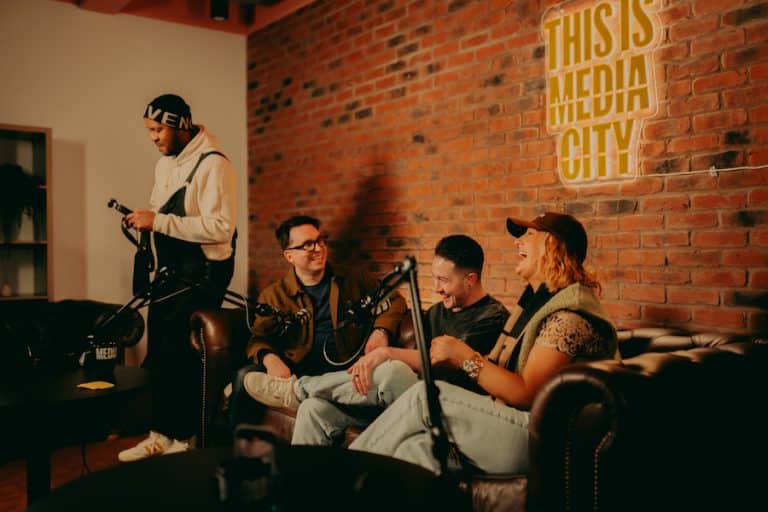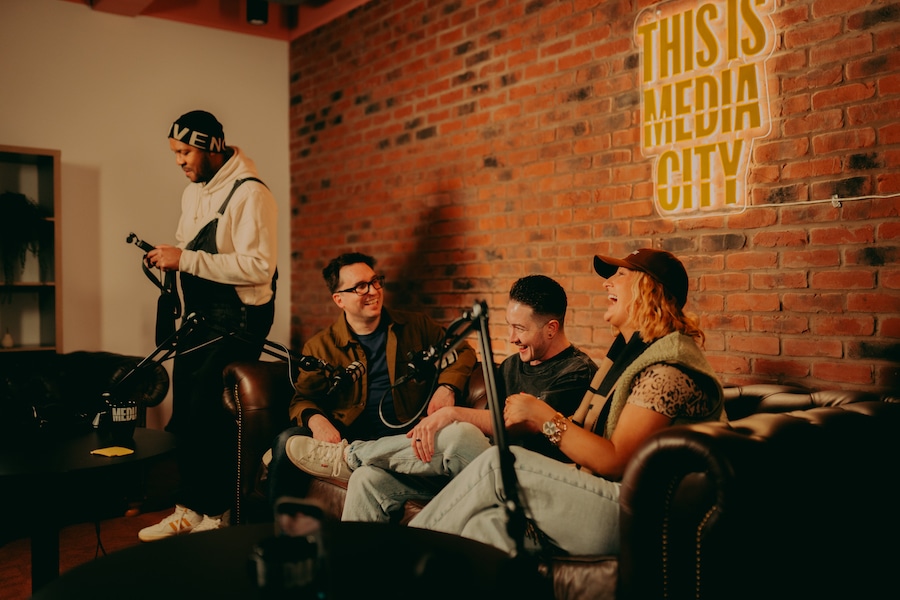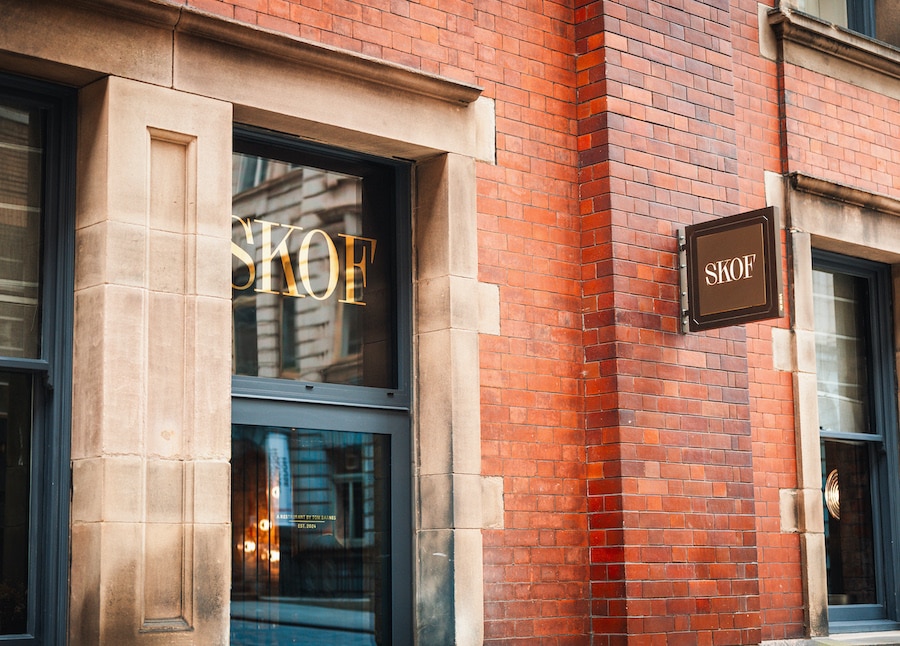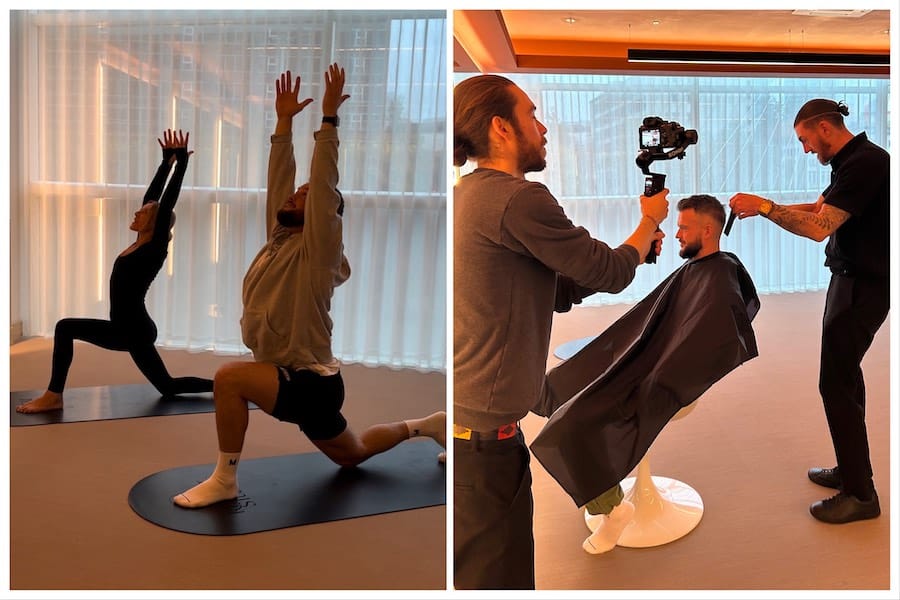Meet the Manchester Bike Kitchen – residents who are pedalling for positive change
- Written by Thom Bamford
- Last updated 1 year ago
- Charity, Community, People
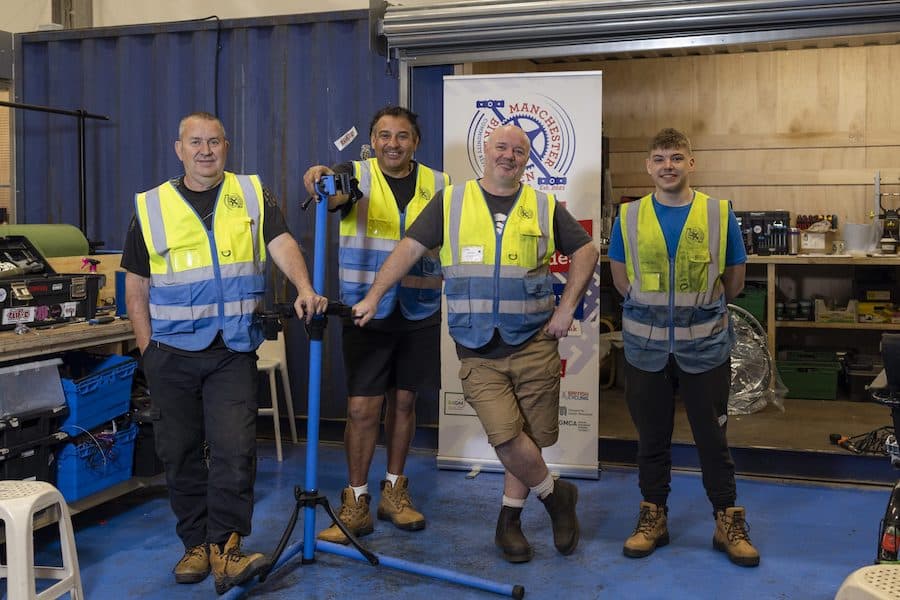
Manchester is not a city you’d typically associate with cycling.
However, that could be about to change.
Despite Manchester having a bit of a reputation for its bustling urban life and traffic congestion, a remarkable initiative is quietly getting people to change their travelling habits one pedal at a time.
The Manchester Bike Kitchen, founded by Andy Hilton and his dedicated team in the midst of the COVID-19 pandemic, has emerged to help change travelling habits within the community.
This is their story—a tale of compassion, community, and a commitment to two wheels.
Spokes of Compassion
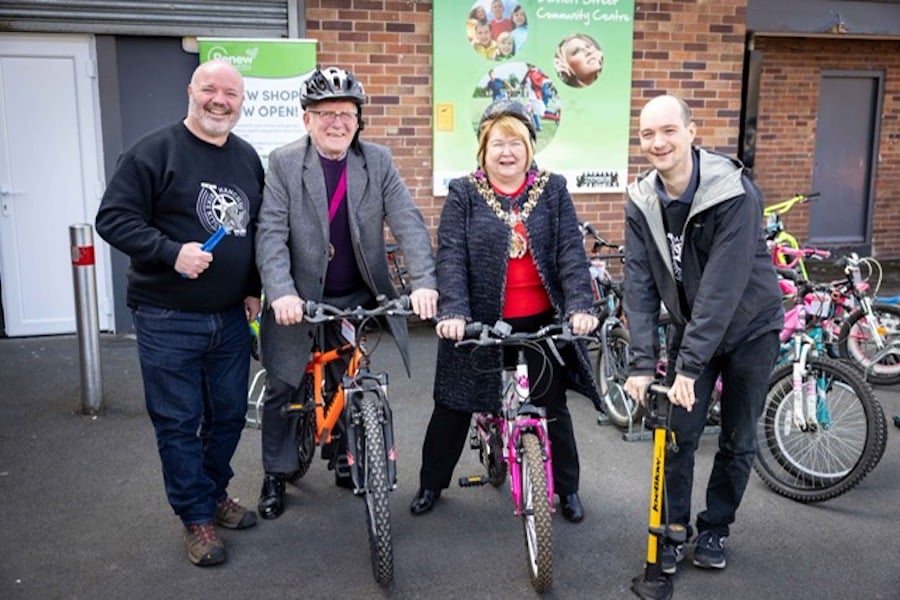
Andy Hilton, one of the directors of the Manchester Bike Kitchen, found himself facing an unexpected twist in his life during the pandemic.
After his involvement in local football development for years, he was furloughed from his job—a situation many can relate to.
It was during this period of uncertainty that Andy discovered his passion for cycling and desire to make a change.
As Andy recalls, “I started riding a bike to keep fit since running was no longer an option due to a hip issue from years of playing football.
“My wife is a teacher and my son was drafted in to the NHS as a paramedic to help out, so i felt at a bit of a loose end.
“Where we live, there’s quite a few professionals who commute to their jobs and one asked me to help fix their bike, so I did.
“Little did I know that would set us out on this journey.”
Driven by this newfound passion, Andy began offering bicycle repair services to his neighbours.
The pandemic had disrupted lives in unimaginable ways, and many were relying on their bikes for essential travel.
Repairing these bicycles became Andy’s way of giving back to the community.
Birth of a Community Hub
Word quickly spread about their bicycle repair service, and people from all walks of life started seeking his assistance.
Recognising a significant gap in the market for accessible and affordable bike repairs, Andy joined forces with two friends who he had known for decades.
Andy said: “We initially began with a pop-up bike repair event at Stratford Arndale on a Sunday. It started as a one-time thing but quickly gained traction in the community. Eventually, we moved to Sale and set up a successful pop-up shop there. That’s when Tameside Council got wind of what we were doing.
They approached us and offered their support to use a disused shop in Clarendon Square Mall in Hyde. We’ve been operating from there on Wednesdays and Saturdays since then. Currently, we’re in discussions with Insure to potentially set up something similar with Insure Forum.
Together, they laid the foundation for what would become the Manchester Bike Kitchen.
Andy shares his motivation, saying, “We saw merit in helping people out so just got stuck in The pandemic has left many feeling isolated and uncertain.
“We wanted to create a space where people could come together, support one another, and find a shared love for cycling.”
Beyond Repairs: A Commitment to Community
The Manchester Bike Kitchen operates as a community interest company, reflecting their dedication to working within and for the communities they serve.
Their mission extends far beyond merely fixing bikes; they aim to foster a sense of community and social value.
Andy said: “After COVID, many people found themselves in situations where they were more susceptible to social isolation, feeling unsafe to venture out.
“We recognised this need for connection, so we created a session where people could come and simply have a chat with us.
“We set up a space, and what was heartening was that people would just walk in and start talking.
“We’d offer them a cup of tea, and they’d often stay a while, whether they wanted to fix a bike or not. It was just a nice way to have people come in and engage with us.
“We realised there was a demand for this kind of interaction, and we sought some funding from the Asda Foundation to cover the cost of tea and coffee. Now, we run this session every Wednesday morning, and it’s been quite successful. We’ve even gained some dedicated volunteers from it.
“Additionally, we work with younger people, using the bicycle as a central hook for engagement. Kids from pupil referral units and others, including those at risk of engaging in antisocial behaviour, come in to get their bikes fixed.
“We’ve collaborated with Salford Council on bike repair sessions for these young individuals. In these sessions, we not only fix their bikes, but we also teach them how to do it themselves, and the bike they work on becomes theirs to keep.
“For those who already have bikes, we help them upgrade their bicycles with better components. We’re fortunate to receive donated bikes, and if we can’t fix them up, we salvage parts from them.
“This approach minimises our impact on the environment and reduces our reliance on the supply chain, which aligns with our commitment to sustainability.
“Furthermore, if we can repair the bikes, we do so, or we sell them to cover our operational costs. This also enables us to donate bikes to Care Leavers in Tameside, Greater Manchester.
“These young individuals, when they transition out of the care system at 18, often find themselves without support. We aim to provide them with a means of transportation and a sense of empowerment as they navigate life beyond the care system.”
Tea and Tinker
Here, participants can enjoy a cup of tea and engage in warm conversations, alleviating the loneliness that often plagues older citizens.
“We recognised that post-COVID, many older individuals were hesitant to leave their homes.
“They felt isolated and disconnected. ‘Tea and Tinker’ provided them with a reason to step out, share stories, and connect with others,” Andy reports.
The Manchester Bike Kitchen is equally committed to engaging with younger generations.
Their “Puncture Parts” initiative, for instance, focuses on teaching kids bike repair skills.
By providing an alternative to antisocial behaviour, they empower young individuals to develop new skills and a sense of responsibility.
They have also partnered with Salford Council to provide bike repair sessions for young people.
Through these sessions, participants learn how to fix their bikes, and the bike they work on becomes their own—a source of pride and empowerment.
Promoting Sustainability Through Recycling
What sets the Manchester Bike Kitchen apart is its dedication to environmental sustainability.
They prioritise salvaging and repurposing bike parts whenever possible, reducing their impact on the environment and the supply chain.
By repairing bikes and selling them at lower costs, they make cycling accessible to those who may not be able to afford a brand-new bicycle.
Andy explains their approach: “We are very conscious of our impact on the environment. By refurbishing bikes and making them available at affordable prices, we not only promote cycling but also minimize waste.
“It’s our way of contributing to a greener future.”
In a world where the cost of living continues to rise, the Manchester Bike Kitchen’s commitment to affordability and community support is truly awesome.
Their story is a testament to the power of a simple idea born out of kindness and the incredible impact it can have on a community.
Creating a Vibrant Cycling Community
As the Manchester Bike Kitchen continues to grow and make a positive mark on Manchester’s landscape, it’s clear that their tireless dedication to cycling, community, and sustainability will continue to inspire many more to hop on their bikes and join the journey.
Andy continued: “We offer training sessions for individuals to learn how to fix and maintain their own bikes.
“These sessions are open to everyone and are designed to empower people with bike repair skills.
“Our programs have seen a diverse group of people attend, reflecting the wide range of services we provide. We strive to cover all aspects of bike-related activities.
“Our work primarily focuses on areas like Hyde and Wythenshawe, which often face economic challenges.
“We recognise that many people in these areas need affordable transportation options, and local councils encourage active modes of transport like walking and cycling.
“However, the cost of new bikes has significantly increased post-pandemic, making quality bicycles less accessible. Before COVID, a decent bike would cost around £350, but now, the same quality bike can set you back about £470 due to the use of cheaper components by manufacturers to meet increased demand.
“I think that’s why it’s been so popular, we offer great, safe second-hand bikes at great prices. Anything that encourages people to take cars off the road, can’t be a bad thing, can it?”
The streets of Manchester are gradually transforming into a haven for cyclists, thanks to the efforts of Andy Hilton and the Manchester Bike Kitchen team.
What began as a humble initiative to mend broken bikes has evolved into an exciting cycling community, one that embraces people of all ages and backgrounds.
Andy reflects on the journey so far, stating, “Our goal is to create a more connected community, one where cycling isn’t just a means of transport but a way of life. We believe that by fostering a love for cycling and creating a strong support system, we can make our city a better place to live.”
With each pedal stroke, the Manchester Bike Kitchen is paving the way for a brighter and more inclusive future—one where compassion, community, and a shared love for cycling take centre stage.
You can find out more about Manchester Bike Kitchen here
- This article was last updated 1 year ago.
- It was first published on 6 October 2023 and is subject to be updated from time to time. Please refresh or return to see the latest version.
Did we miss something? Let us know: [email protected]
Want to be the first to receive all the latest news stories, what’s on and events from the heart of Manchester? Sign up here.
Manchester is a successful city, but many people suffer. I Love Manchester helps raise awareness and funds to help improve the lives and prospects of people across Greater Manchester – and we can’t do it without your help. So please support us with what you can so we can continue to spread the love. Thank you in advance!
An email you’ll love. Subscribe to our newsletter to get the latest news stories delivered direct to your inbox.
Got a story worth sharing?
What’s the story? We are all ears when it comes to positive news and inspiring stories. You can send story ideas to [email protected]
While we can’t guarantee to publish everything, we will always consider any enquiry or idea that promotes:
- Independent new openings
- Human interest
- Not-for-profit organisations
- Community Interest Companies (CiCs) and projects
- Charities and charitable initiatives
- Affordability and offers saving people over 20%
For anything else, don’t hesitate to get in touch with us about advertorials (from £350+VAT) and advertising opportunities: [email protected]
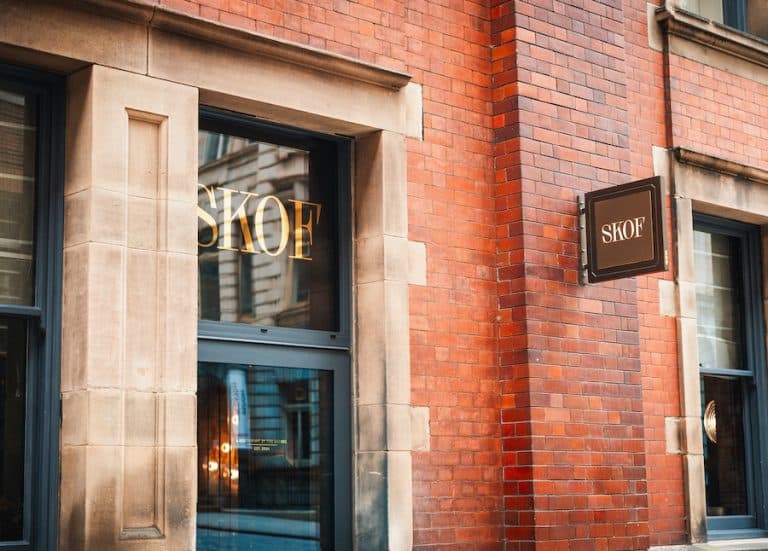
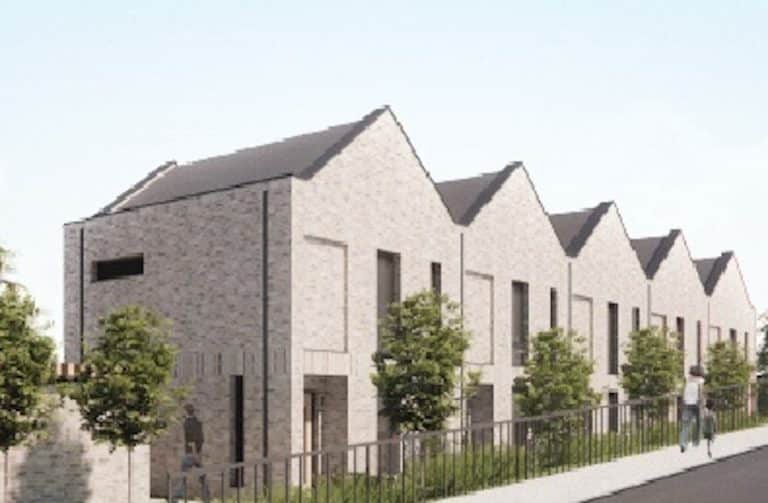

Afrosocial is changing the game for Afro-Caribbean professionals in Manchester
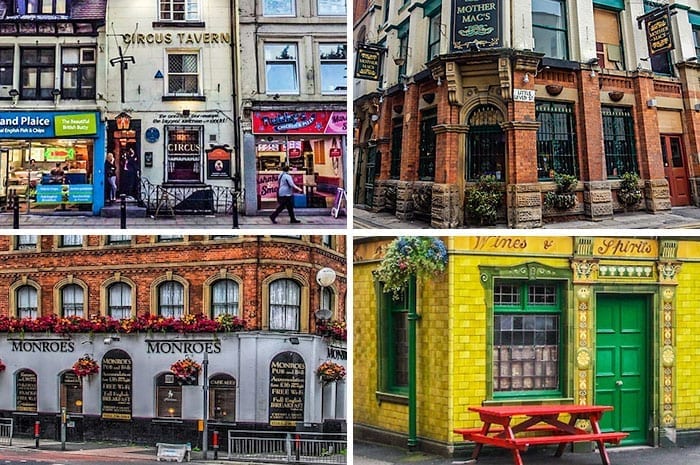

From paws to applause: Could your dog be Manchester’s next big opera star?
